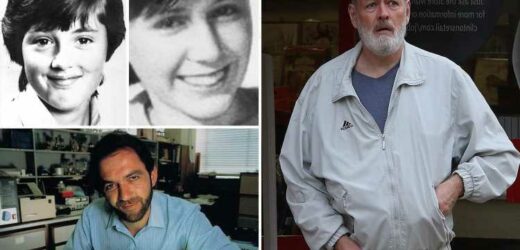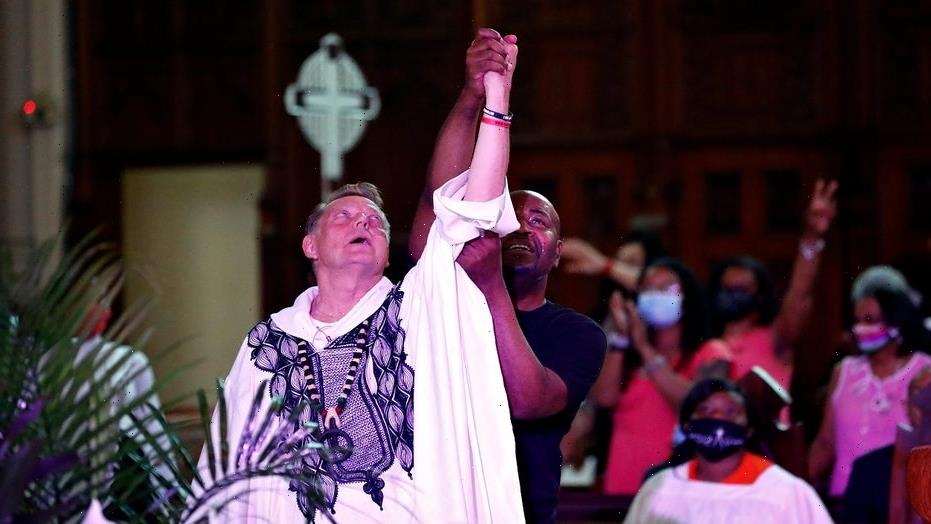WHEN the body of 15-year-old Dawn Ashworth was found in a Leicestershire field, cops immediately knew they were dealing with a serial killer.
Another schoolgirl of the same age, Lynda Mann, had been raped and strangled to death with her own scarf three years earlier close to where Dawn's body was found – now the girls' killer can go free.
🔵 Read our Colin Pitchfork live blog for the latest updates
Colin Pitchfork, 61, was in 1988 sentenced to life in prison for his horrific crimes – he was the first murderer to be convicted using DNA evidence.
Now the Parole Board has ruled he can be released, believing he is no longer a danger to the public after he was turned down for release on two previous occasions.
The killer will have 35 conditions attached to his release, including electronic tagging and lie detector tests.
He was only brought to justice thanks to trailblazing science – and even then, another crucial mistake was needed to catch the killer.
Here's the story of how Pitchfork was brought down.
Schoolgirls raped and murdered
Lynda Mann took a shortcut on her way home from babysitting in Narborough on 21 November 1983 – when she didn't arrive at the house, her worried parents spent the evening looking for her.
The next morning, her body was found dumped on a local footpath.
She'd been raped and strangled to death.
Police had no leads or evidence in the crime until Dawn Ashworth's body was found in similar circumstances in July 1986.
Dawn had left a friend's house in Narborough and vanished on the short walk to her home in the neighbouring village of Enderby.
Her body, found in the corner of a field hidden under branches, showed signs of a terrible struggle before she was killed.
Shortly after her body was found, cops arrested Richard Buckland – a local 17-year-old with learning difficulties who knew Dawn.
During questioning, Buckland repeatedly confessed and then withdrew his admission of guilt in Dawn's killing – but he refused to admit to Lynda's murder.
Convinced both girls were killed by the same person, authorities charged Buckland with the two murders in August.
Sleuth breakthrough
Cops wanted to definitively prove Buckland was responsible for both killings and so turned to an unprecedented source for help.
Alec Jeffreys, a geneticist at the University of Leicester, had recently made an incredible accidental discovery about DNA.
He attached DNA extracted from cells to photographic film which, when developed, showed a series of dark lines.
Jeffreys realised he could identify people in a study from images of their DNA alone.
That's why police officers called him to use his "DNA fingerprinting" technique to prove that the same person killed Dawn and Lynda.
Using semen samples collected from the victims' bodies and comparing it with Buckland's blood, Jeffreys confirmed the same man had indeed raped both Dawn and Lynda – but it definitely wasn't Buckland.
Buckland was released, leaving investigators once again with no idea who was responsible for the horrific murders.
But they realised DNA fingerprinting could be the tool they needed to crack the case.
Massive manhunt
Their solution was to snare the killer with a DNA dragnet.
Every man in a certain age range who'd lived or worked in the Narborough area was sent a letter asking for a blood sample.
Civil liberty groups disagreed with the mass screening process, but thousands of men submitted samples anyway desperate for the killer to be found.
One sample submitted was recorded as belonging to Colin Pitchfork, a 27-year-old baker who'd once been questioned about his whereabouts on the night of Lynda's murder.
The dad-of-two told cops he'd been looking after his young son, and no further action was taken against him.
In 1987, a year on from Dawn's killing, one of Pitchfork's workmates – Ian Kelly – was having a drink with friends at a pub in Leicester.
Kelly told his pals he'd given a blood sample to investigators on Pitchfork's behalf using false identifying documents.
He did so because Pitchfork told Kelly that he'd already given a fraudulent sample as a favour to a friend who wanted to avoid police attention after a previous conviction.
Someone who heard Kelly's confession reported it to police, who promptly arrested him and Pitchfork.
'It's just not right'
Finally in handcuffs, Pitchfork confessed to the crimes and gave grim details of the attacks.
He had indeed been with his son on the night of Lynda's disappearance – the baby was in the back of Pitchfork's car parked near to where he raped and killed the schoolgirl.
Pitchfork also confessed to two other sexual assaults and, at trial in 1988, he pleaded guilty to all charges against him.
He was sentenced to life in prison with a minimum term of 30 years, with the Lord Chief Justice at the time expressing a desire for him to be behind bars forever.
"From the point of view of the safety of the public I doubt if he should ever be released," Lord Lane said.
His sentence was reduced to 28 years in 2009 after the Court of Appeal recognised the "exceptional progress" he's made in custody.
That included becoming a specialist in transcribing printed music into Braille, work which has been used around the world.
But his previous bids for release have been opposed by the families of his victims.
"A man like him, who did what he did, he should never be allowed out," Lynda's mum Kath Eastwood previously told The Mirror.
"They told me that the man who killed my daughter was planning to appeal, that he was trying to win his freedom.
"I still can't quite believe it, to be honest. It's just not right is it?"
Now using the name David Thorpe, Pitchfork has been cleared for release after decades behind bars.
A document detailing the Parole Board decision said: "After considering the circumstances of his offending, the progress made while in custody and the evidence presented at the hearing, the panel was satisfied that Mr Pitchfork was suitable for release."
Source: Read Full Article








